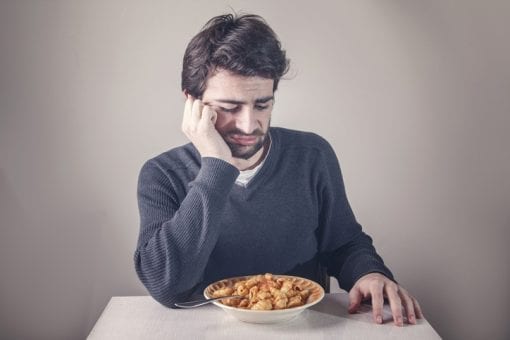
Define Compulsive Eating Disorder
Impulsivity and bulimia nervosa? Eating disorders, including bulimia nervosa, are often described as both compulsive and impulsive. Compulsivity refers to repeatedly acting on an irresistible urge in other words; compulsivity is a tendency to repeat the same, often purposeless acts, which are sometimes associated with undesirable consequences. Impulsivity refers to a tendency to act prematurely and without foresight. Impulsive actions are often poorly conceived, prematurely expressed, unduly risky, or inappropriate to the situation and often result in undesirable outcomes. Mental health disorders characterized by impulsivity include impulse control disorders representing a failure to resist aggressive impulses (intermittent explosive disorder) and urges to steal (kleptomania), set fires (pyromania), gamble (pathological gambling), and pull one’s hair (trichotillomania). Obsessive-compulsive disorder is the prime example of compulsivity as individuals engage in repetitive, compulsive acts to relieve tension brought on by unwanted and disturbing obsessions.
Impulsivity and the binge
Bulimia nervosa is characterized by consuming a large amount of food in a short period followed by the urge to rid the body of any calories that were consumed during this binge. The uncontrollable urge to binge is an impulsive behavior that is dictated by the loss of control as a way to suppress any emotional unrest. Individuals struggling with bulimia nervosa are experiencing uncomfortable emotions and turn to food as an unhealthy coping mechanism in an attempt to self-medicate. The mass intake of food during a binging period is uncontrollable and often is prematurely expressed and is therefore impulsive. During a binge individuals usually consume food that is high in calories such as donuts, chips, cupcakes, candy, and any other packaged, process foods that are high in sugar and fat. Studies performed in rats have shown that sugary foods are addictive in the same manner as illicit drugs as both sugar and heroin increase the production and release of dopamine in the body.
Impulsivity and the purge
After individuals engage in binging episodes, they are often consumed with feelings of guilt and shame. As a result, their thoughts are dominated by an obsession to rid the body of all calories that just consumed so they turn to purge in the form of self-induced vomiting, excessive exercise or laxative abuse; all of which are dominated by impulsivity. Individuals engage in purging behaviors at such an impulsive rate that they do not think about the consequences these behaviors can have on their body. From excessive and dangerous exercise and taking too many laxatives to self-induced vomiting, these actions can have the potential to injure muscles, produce a lazy gut and destroy the gastric and oral cavity; respectively.
Causes of impulsivity
Impulsive behaviors are undoubtedly a product of a wide variety of factors, including genetics, biological factors, family environment, stressful situations, and social and peer influences. Evidence has shown the relationship between levels of serotonin, a neurotransmitter in the brain, and impulsivity, possibly indicating that there is a genetic link in between this brain chemical and impulsive behaviors leading to bulimia nervosa. Individuals who struggle with impulsive behaviors and bulimia nervosa are more likely to have been raised in an abusive environment compared to the general population. For example, children who have been sexually abused are more likely to engage in a variety of impulsive behaviors, including binging and purging, than non-abused children.
How impulsivity affects eating disorder treatment
Eating disorder clients who are deemed highly impulsive may have a more difficult time in therapy because they are more prone to relapse and may have other co-occurring conditions such as borderline personality disorder and substance abuse disorder which can complicate the treatment regimen.
We’re Here for You
If you are struggling or someone you know is struggling, we are here for you. Center for Discovery’s Treatment Centers specialize in treatment for eating disorders, mental health and dual diagnosis treatment with unique treatment programs for every individual to get them on their way to eating disorder recovery.
For more information, resources, or to consult with one of our specialists, call 888.320.7521.
Coronavirus Quarantine and Eating Disorders: A Perfect Storm
